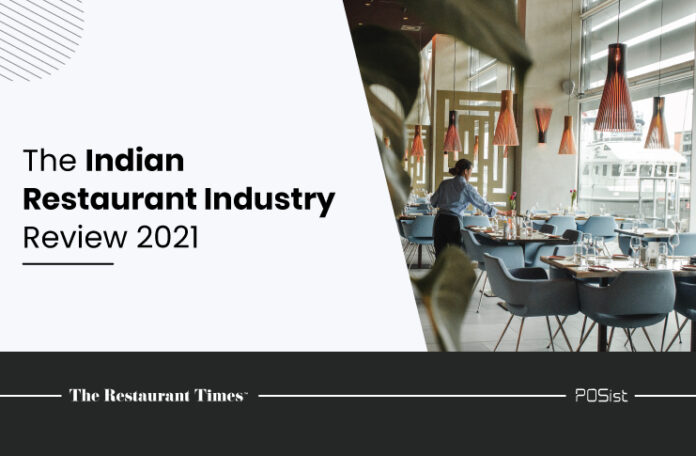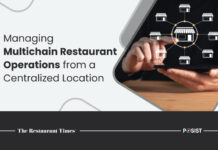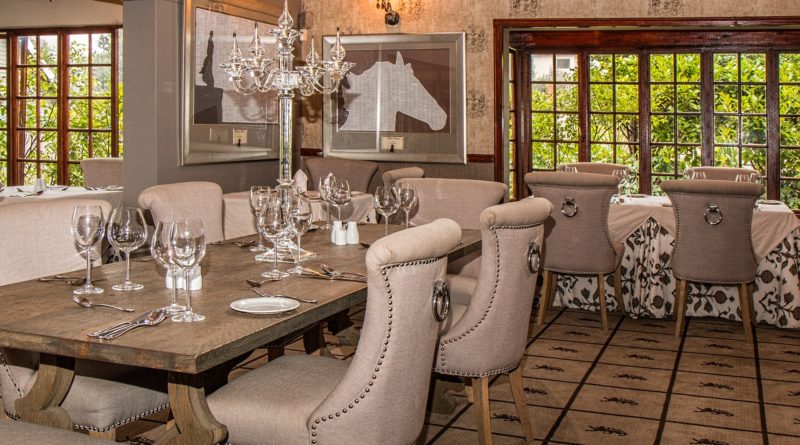If the Indian restaurant industry has learned anything from the economic repercussions of the pandemic, it is that this recovery will be more like a marathon, not a sprint. If this was considered a race to return to normalcy, it is far from finished, and we don’t yet have a winner. The restaurant industry was one of the most severely affected by the Covid-19 outbreak around the world. According to research by the National Restaurant Association of India (NRAI), the Indian food services business experienced a 53% decline in FY2021 as compared to the previous fiscal year.
Creativity and resiliency have been key factors for the restaurant business during this testing time, a few other industries have had to be as imaginative during the epidemic merely to survive. Restaurants were among the first enterprises to be slowed down, shut down, or slammed with never-before-seen safety standards. However, now, the floodgates have opened and consumers are returning, wistful for what they had pre-pandemic.
Here is a 2021 Recap of the Indian restaurant industry.
Technological Advances Kick Start 2021 The Indian Restaurant Industry
The public was delighted that they may once again visit their favourite restaurant, but not everything has been restored to its previous state. In addition, new technology and service elements like mobile and online ordering applications, home delivery, curbside pickup, call-ahead ordering, meal kits, outdoor eating, and the use of QR codes were being incorporated into the dining experience.
The only path ahead is to let go of something that has been holding you back. As the year 2021 approached, everyone preferred to forget about their problems and look forward to a bright and promising future. After experiencing the worst shutdown in history, the food and beverage industry was getting back on its feet by implementing strategies to conform to the new normal. Dineout, a leading restaurant technology platform, has developed a list of the projected developments in the food and beverage sector by 2021, based on data from its B2B platform investor. According to it, there are several businesses and future pathways that will dominate the sector in the upcoming years. Based on an examination of more than 15,000 restaurants that use investors’ Contactless Dining suite of products, these conclusions were reached.
March: Fest And Food Festivals
The month of March saw the reopening of the restaurant industry and restrictions being laid off. With that concerts and food festivals started taking place. A 10-day culinary festival “Great Foodie Fest” took place from March 26th to April 4th, 2021, in Bengaluru, thanks to the support of Amazon Food, which backed the event. During this one-of-a-kind food festival, clients in Bengaluru took advantage of excellent savings and cashback on orders placed with popular and hygienic-certified local restaurants and cloud kitchens, all of which were delivered to their homes. Winners of the competition received an additional 10 percent cashback, while Prime members received an additional 15 percent cashback on any item they ordered over the course of the following month.
April: Getting Through The Pandemic Once Again
(i) The hotel and restaurant industry demonstrated against the Maharashtra government’s move to close businesses in accordance with new COVID-19 guidelines. Several hospitality associations from across the state banded together to form the United Hospitality Forum of Maharashtra (UHF), and the #MissionRoziRoti campaign was launched in protest of the shutdown. These associations included the FHRAI, HRAWI, NRAI, AHAR, and other local associations. Earlier, protests against the government decision were staged by retail establishments in several sections of Mumbai.
(ii) Dineout launched a new project “Project Thali” to aid those affected by the lockdown and suffering from hunger and malnutrition. In cooperation with the nonprofit, World Health Group, the project aimed to invite more people to donate food to vulnerable families.
May: Restaurants On Wheels
In the second quarter of the year, it was encouraging to see the immunization campaign gaining traction, which resulted in increased customer confidence. The Immunity Boosting Menu at the JW Marriott Mumbai, Sahar was created to leave customers feeling satisfied in mind, body, and spirit. It was available for order and delivery through the “Marriott on Wheels” meal delivery service. The menu, which included foods and beverages high in important vitamins and minerals, was designed to help people increase their immunity while also promoting a healthy lifestyle and elevating their mood. The food experience is produced with the highest care, following all applicable hygiene and safety regulations.
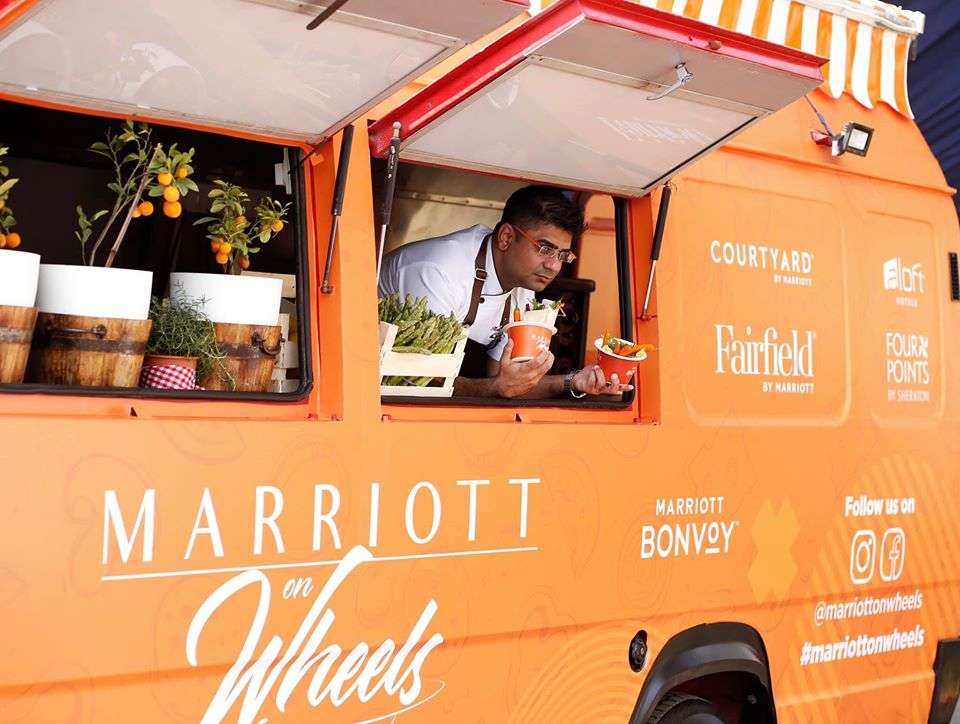
June: Inviting Sustainability
(i) Even as major marketplaces and malls in Delhi prepare to reopen their doors to the public on June 8, the wait was about to get a bit longer for consumers to dine at their favourite establishments. On Sunday, Delhi Chief Minister Arvind Kejriwal said that all restaurants and malls in the city would reopen in accordance with federal norms. According to the instructions released by the state government earlier that month, eateries could only be open for takeout and delivery services, not for regular business. Some restaurants began operating their kitchens with bare minimum staff for takeout and delivery services, but they claimed that opening restaurants for dine-in services would increase their operating costs and that they would earn no revenue if they were not permitted to serve alcoholic beverages. The distinction between a bar and a restaurant was not clearly defined in the guidelines, creating confusion. Restaurants were permitted to open in accordance with the requirements for Unlock 1, but bars were not.
(ii) Two seemingly disparate industries — mobility and food, witnessed one of the most dramatic revolutions in recent history, with far-reaching repercussions. Living Food Co., an online marketplace based in Bangalore, experimented with electric vehicles for its delivery fleet to link the future of food with the future of transportation. Although the ever-famous “pivots” allegedly occurred overnight out of necessity, the increased pace of innovations and adaptability positioned the Indian restaurant industry well for the second half of 2021.
July: KFC Stepping Up The Game
Indian authorities rapidly increased their efforts to vaccinate a greater number of people and provide prompt access to high-quality healthcare in the face of the second wave of COVID-19 epidemic that swept across the country.
The Bengaluru edition of KFC India’s India Sahyog programme was launched in July. The company discovered that small restaurants and local food establishments were particularly hard struck by the second wave and the ensuing lockdowns, and were struggling to keep their doors open. As part of their India Sahyog programme, which was launched in collaboration with the Food Safety and Standards Authority of India (FSSAI) and the National Restaurant Association of India, KFC India aimed to provide assistance to such businesses and assist them in overcoming the effects of the pandemic. It announced an initiative to help 100 small businesses and local eateries in the city as part of the launch. The main goal of the initiative was to assist 500 eateries across the country by 2022, with the first three cities being Bengaluru, Delhi, and Hyderabad.
August: Pubs And Bars Reopened
Several restaurants, pubs, bars and lounges in Mumbai and other parts of Maharashtra that had stayed shut after the second Covid-19 wave finally reopened, after Mantralaya eased curbs and allowed these outlets to operate until 10 pm from Monday. National Restaurant Association of India (NRAI ) president Anurag Katriar said most restaurants should open, operating within the 10 pm deadline.
September: First Double Decker Food Bus
In collaboration with his partner Sukhraj Singh, Surjit Singh, one of the co-founders of popular cafes and nightclubs, Lords of the Drinks, Warehouse Cafe, Open House Cafe, and IMLY, developed a double-decker bus themed dining destination named Food Bus India– a moving vehicle to dine in for food lovers across the National Capital Region (NCR) and other Indian cities. Understanding the growing need as well as the shifting lifestyles, this double-decker bus dining gave diners a unique environment to enjoy their meal.
October: Teaming Up Of Giants
A major announcement for the Indian restaurant industry was the long-term, multi-market relationship with Rebel Foods, FoodPanda, Asia’s leading food and grocery delivery platform moved to enable restaurant partners and cloud kitchen operators to generate additional income streams with minimal or no start-up expenses. Foodpanda and Rebel Foods teamed together to create a new digital-first F&B model that will help local and small businesses as well as consumers. This partnership, which will last for an initial five years, saw both companies work together to launch more than ten virtual brands in more than 2,000 locations across Asia, making it the largest virtual brand partnership in the world and the first of its kind in the region on such a large scale.
November: New Initiatives And Lowered Drinking Age
(i) Zomato, the online meal delivery platform, announced the introduction of ‘Zomato Wings’, a platform that would link investors with restaurants in order to assist them in raising financing. Deepinder Goyal, co-founder and CEO of Zomato, said in a blog post that the effort was aimed at the hundreds of blossoming restaurants that may not have the competence or focus to raise funds at the right time. Along with its September quarter earnings, Zomato announced a series of partnerships that would allow the company to grow its operations.
(ii) In anticipation of the implementation of the new excise policy, the restaurant industry was abuzz with speculations about liberalized procedures for liquor licences, permissions to use open areas in eateries, regularized licence fees based on area rather than seats, serving alcohol in bottles at the table and operating until 3 am, and eventually lowering the legal drinking age to 21 years.
The National Restaurant Association of India (NRAI) conducted a number of meetings with various authorities to discuss the industry’s concerns, and both its former and current presidents have referred to the new policy as “groundbreaking.” Because the new regulation included a reduction in the number of dry days, similar to those in Haryana, Punjab, and Uttar Pradesh, eateries in the city could now sell alcoholic beverages beyond 5 p.m. on holidays such as Republic Day and Independence Day. Permission to transfer the liquor licence to another firm operating on the same premises and enabling 5-star hotels to offer alcohol around the clock were enthusiastically received.
December: Bringing Retro Back
With the help of its exclusive licence partner, UnitedVegan Pvt. Ltd., the legendary “Charlie Chaplin” opened its food and beverage vertical in India. The first flagship Quick Service Restaurant (QSR) dubbed “Charlie Chaplin LaVegano” was opened in Bengaluru’s New Bel Road. Breakfast is served all day, as are salads and appetizers, as well as burgers and pizzas, wraps and rice bowls, as well as drinks. Dessert is also available. Charlie Chaplin LaVegano features mesmerizing Chaplin-themed décor and serves up fun and cuisine while also exhibiting the immortal music and films of the famous thespian. Props from Chaplin’s films and personal memorabilia, such as a Chaplin statue, hat, staff, selfie point, and watch clogs, may be seen at a number of locations throughout the QSR.
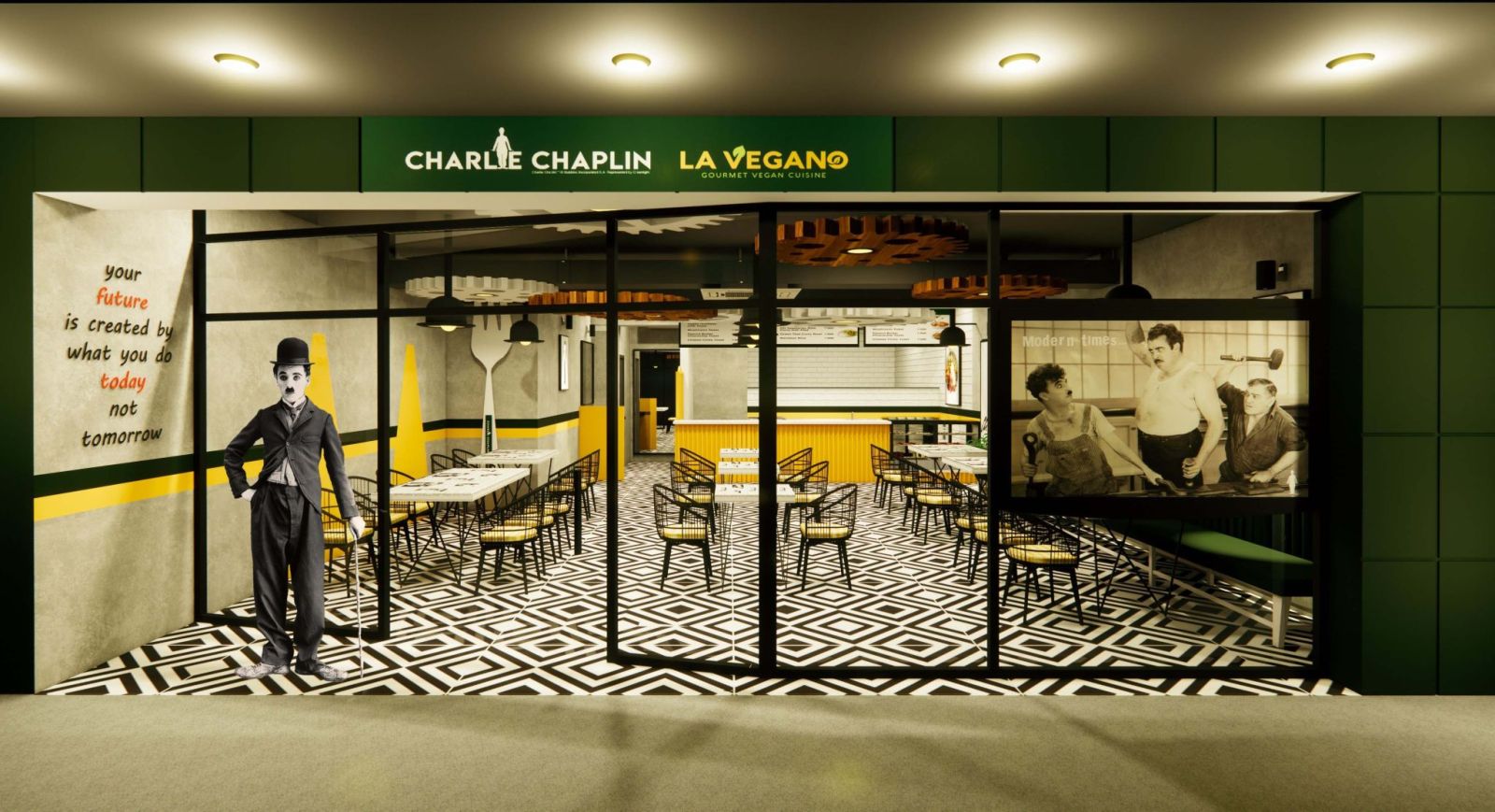
Conclusion
After two years of suffering due to the coronavirus pandemic, the Indian restaurant industry is hoping for some respite in 2022, including some form of government assistance. Recovering from the effects of the pandemic, which has ravaged the country for the past two years, will be a difficult journey.


